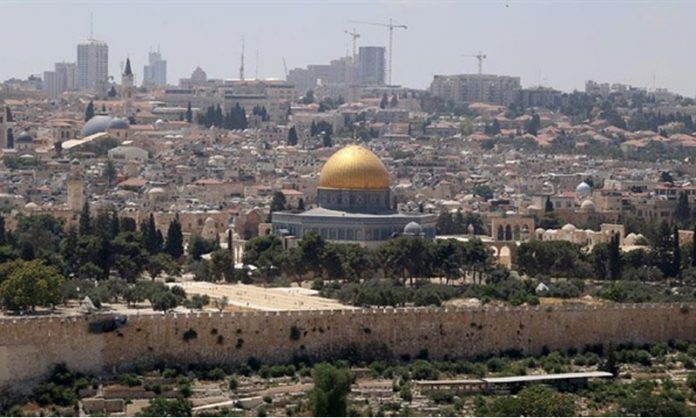Muslim leaders told the faithful to return to pray inside a major Baytul Muqaddas holy site on Thursday after Israel removed security devices it installed outside entrances to the shrine following a deadly Palestinian attack at the compound.
Thousands of Palestinians had been praying in the streets outside the shrine to protest the security measures since the crisis began.
“After extensive discussion and after achieving this victory in this round we call on our people in Baytul Muqaddas and inside (Israel) and anyone who can access the Al-Aqsa Mosque to enter … en masse,” the Islamic leaders declared in a statement.
The head of the Supreme Islamic Committee, Ikrema Sabri, said the first prayers would be held there Thursday afternoon.
Israel installed the new security measures earlier this month after a shootout at the site.
It said the security measures were necessary to prevent more attacks and are standard procedure to ensure safety at sites around the world. Palestinians claimed Israel was trying to expand its control over the site.
The issue sparked some of the worst street clashes in years and threatened to draw Israel into conflict with other Arab and Muslim nations.
Palestinians danced, chanted “God is Great” and set off fireworks after some security devices were removed early Thursday morning. It dismantled metal detectors there earlier this week.
Israel removed the devices under intense pressure and said it plans to install sophisticated security cameras instead.
But Palestinian politicians and Muslim clerics had insisted that wasn’t enough and demanded Israel restore the situation at the shrine in Jerusalem’s Old City to what it was before the July 14 attack.
The fate of the site is an emotional issue at the heart of the conflict between Israel and the Palestinians. Even the smallest perceived change to delicate arrangements pertaining to the site sparks tensions.
Israel’s decision to add security measures there outraged Muslim and triggered protests, and low-level clashes have continued in and around Jerusalem in the days since.
The continued standoff highlighted the deep distrust between Israel and the Palestinians when it comes to the holy site.
Jews revere the hilltop compound in Baytul Muqaddas’ Old City as the Temple Mount, site of the two Jewish biblical temples. It is the holiest site in Judaism and the nearby Western Wall, a remnant of one of the temples, is the holiest place where Jews can pray.
Muslims believe the site marks the spot from which the Prophet Muhammad (PBUH) ascended to heaven. It is Islam’s third-holiest site after Mecca and Medina in Saudi Arabia.
The latest development could put Israeli Prime Minister Benjamin Netanyahu in a tough spot as he tries to tamp out a wave of unrest that has triggered international pressure while not appearing to his hard-line base as capitulating.





